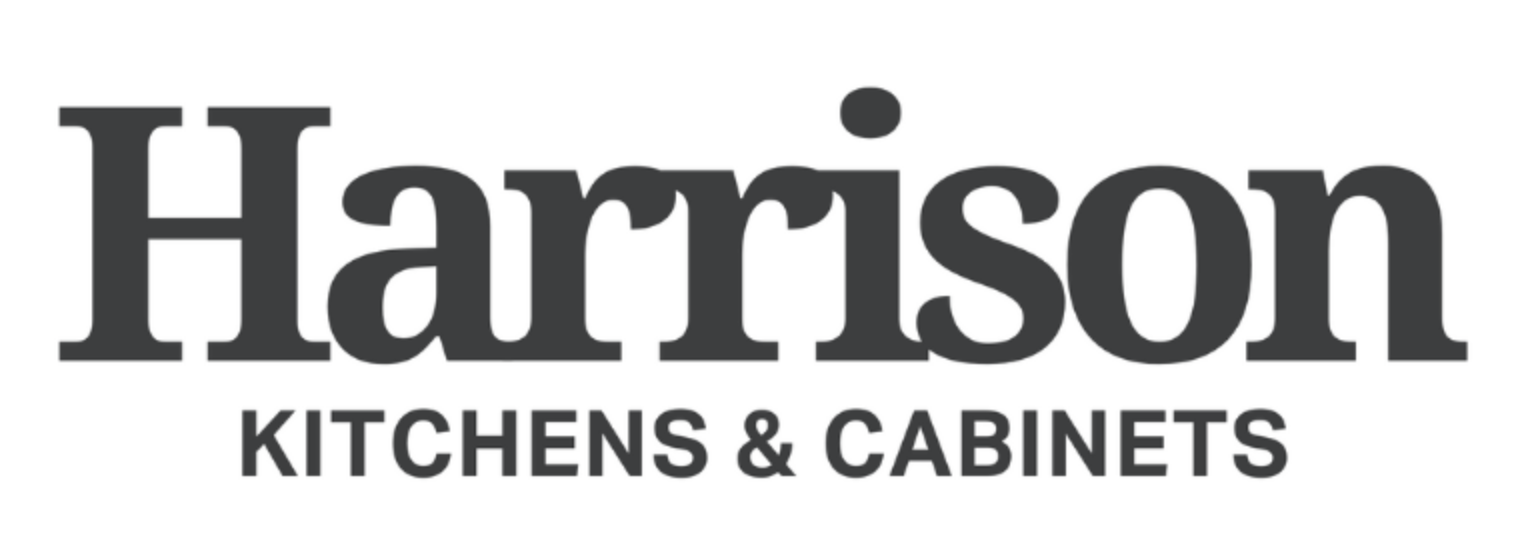We've recently completed this stunning project in an inner-southern Adelaide suburb, with white accents and White Oak wooden fixtures throughout the home.
Kitchen
The customer wanted to create a more cohesive kitchen, with white marble accents through the island and cabinet benchtops.
• Back bench – Stone Ambassador 'White Truffle'
• Island Caesarstone ' Statuario Maximus'
• Bar Back Panel Scallop Profile 'Vivid White"
• Over heads Timber Veneer American White Oak Crown Cut with clear coat – Veneer Panels Plus
• Accessories – Custom Platter Racks, Hafele Pull Out for tea towels
• Pantry modifications – replaced kickers, put doors on overheads, installed inner drawers
Design
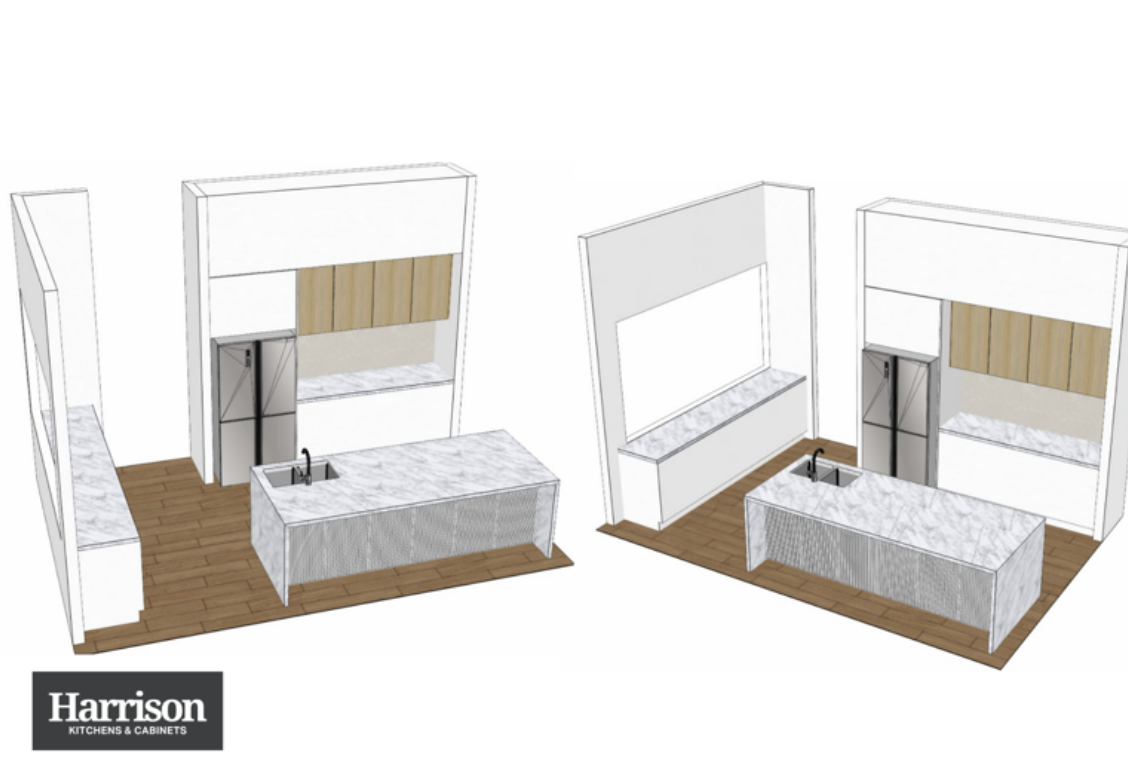
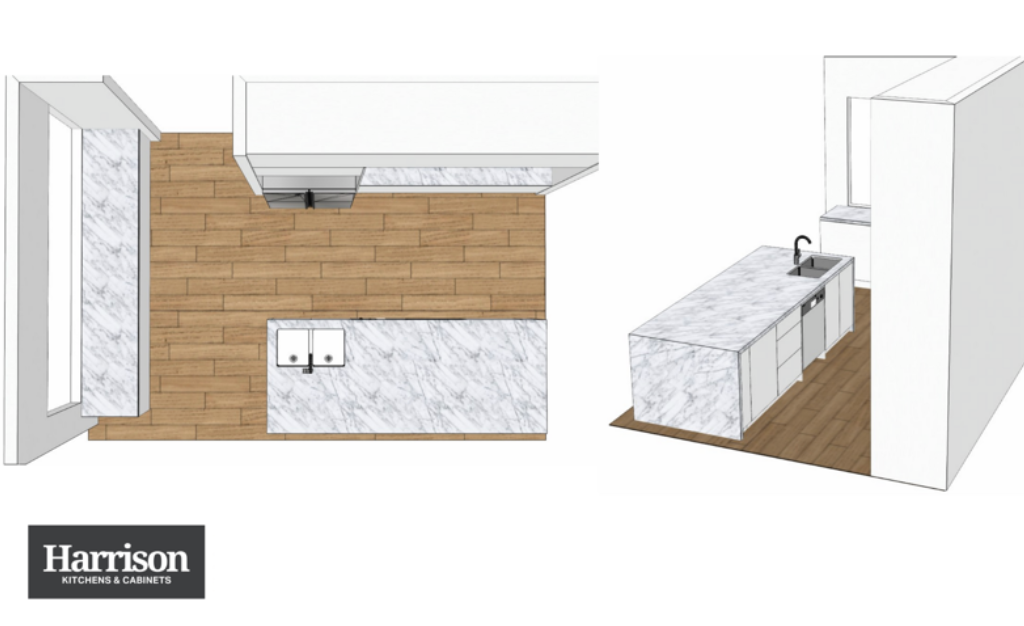
Final Product
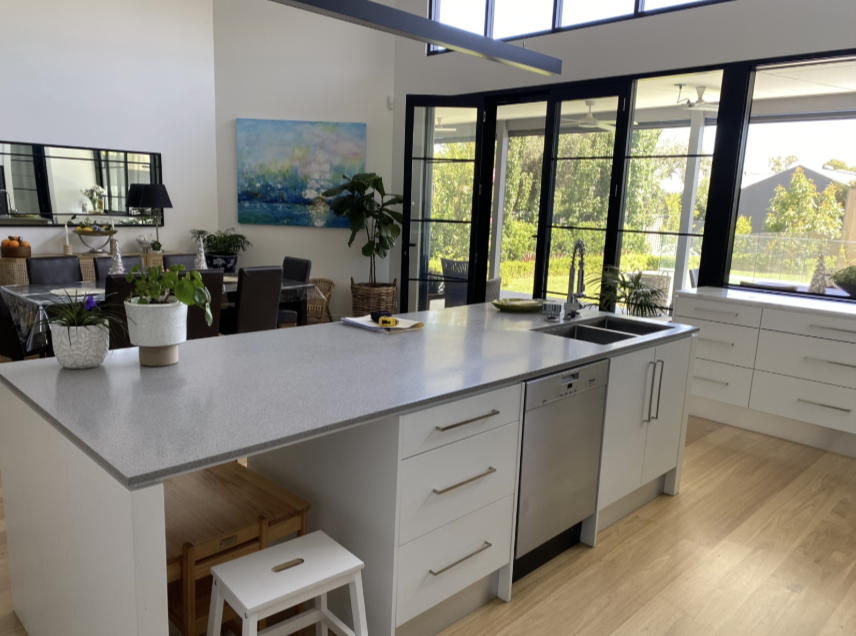
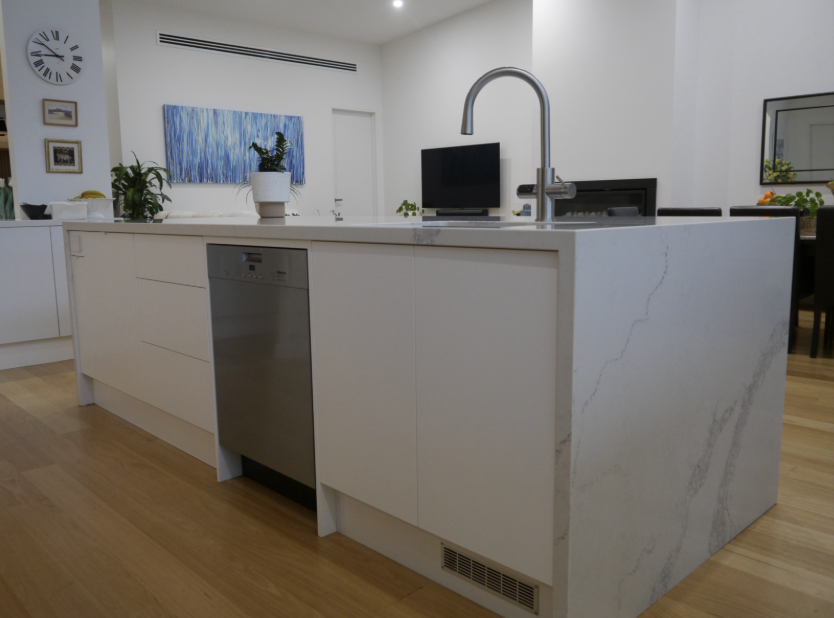
New Entertainment Unit
The White Oak entertainment unit fits in with the warmth of the timber floorboards, the wooden coffee table and the wooden furnishings.
• Timber Veneer American White Oak Crown Cut with clear coat – Veneer Panels Plus
• Round End - custom
• Rattan from House of Bamboo
• Top 30mm to match doors
• Handles Made Measure – Leather Bound Pull 03 Grey with black core
Design

Final Product
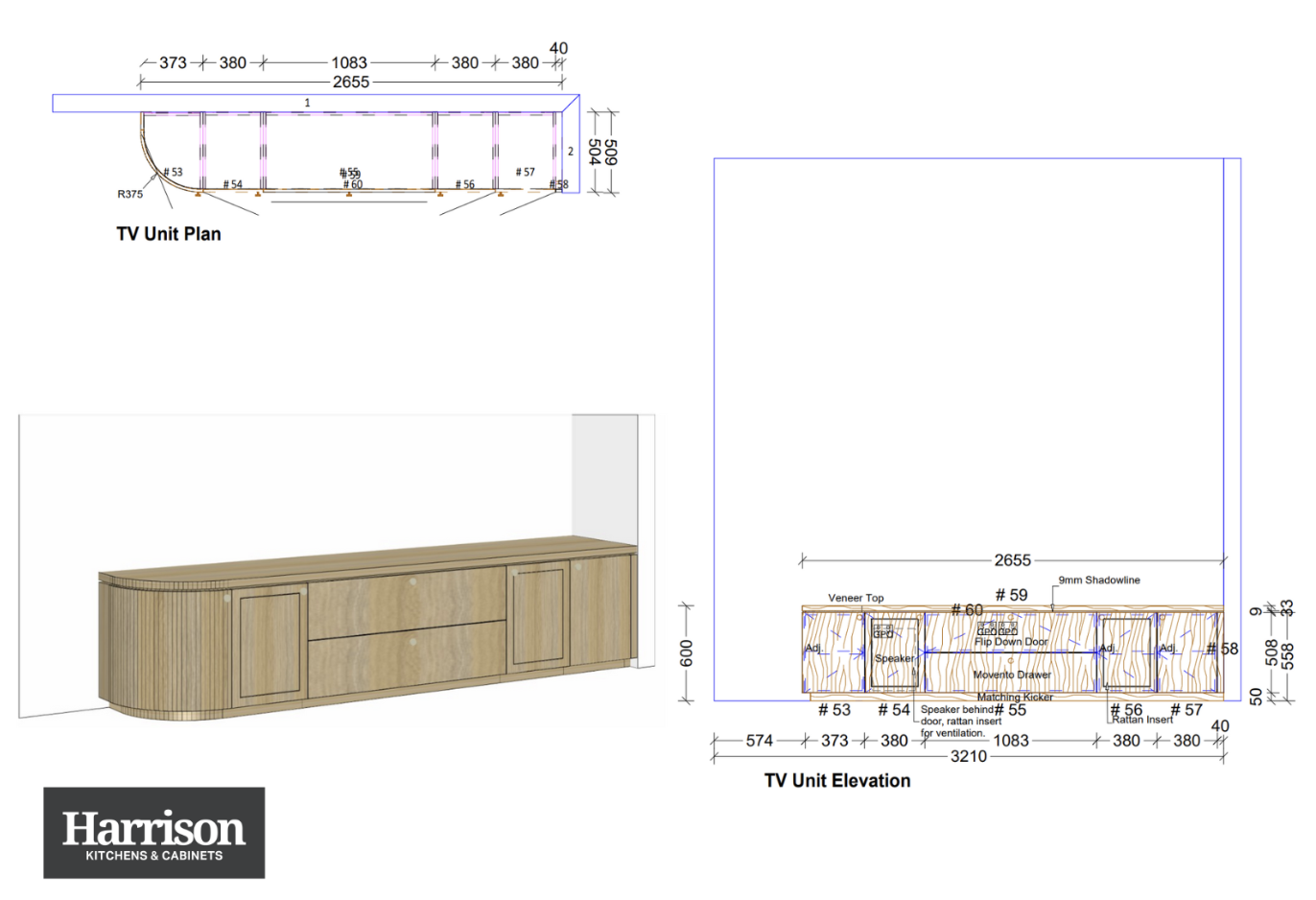
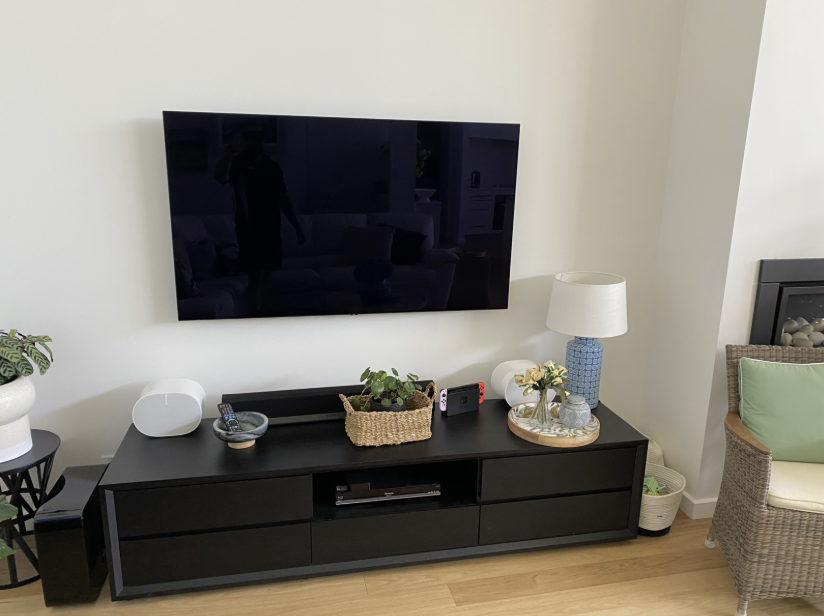
New Study Wall Paneling and Overhead Cabinets
To provide a more cohesive study space, the customer had White Oak wooden cabinets installed overhead, as well as a shelf and timber lining boards. The wall panelling creates a natural warmth to the space.
• Timber Veneer American White Oak Crown Cut with clear coat – Veneer Panels Plus
• Porta Timber Pinnacle profile American Oak with clear coat wall paneling.
Design
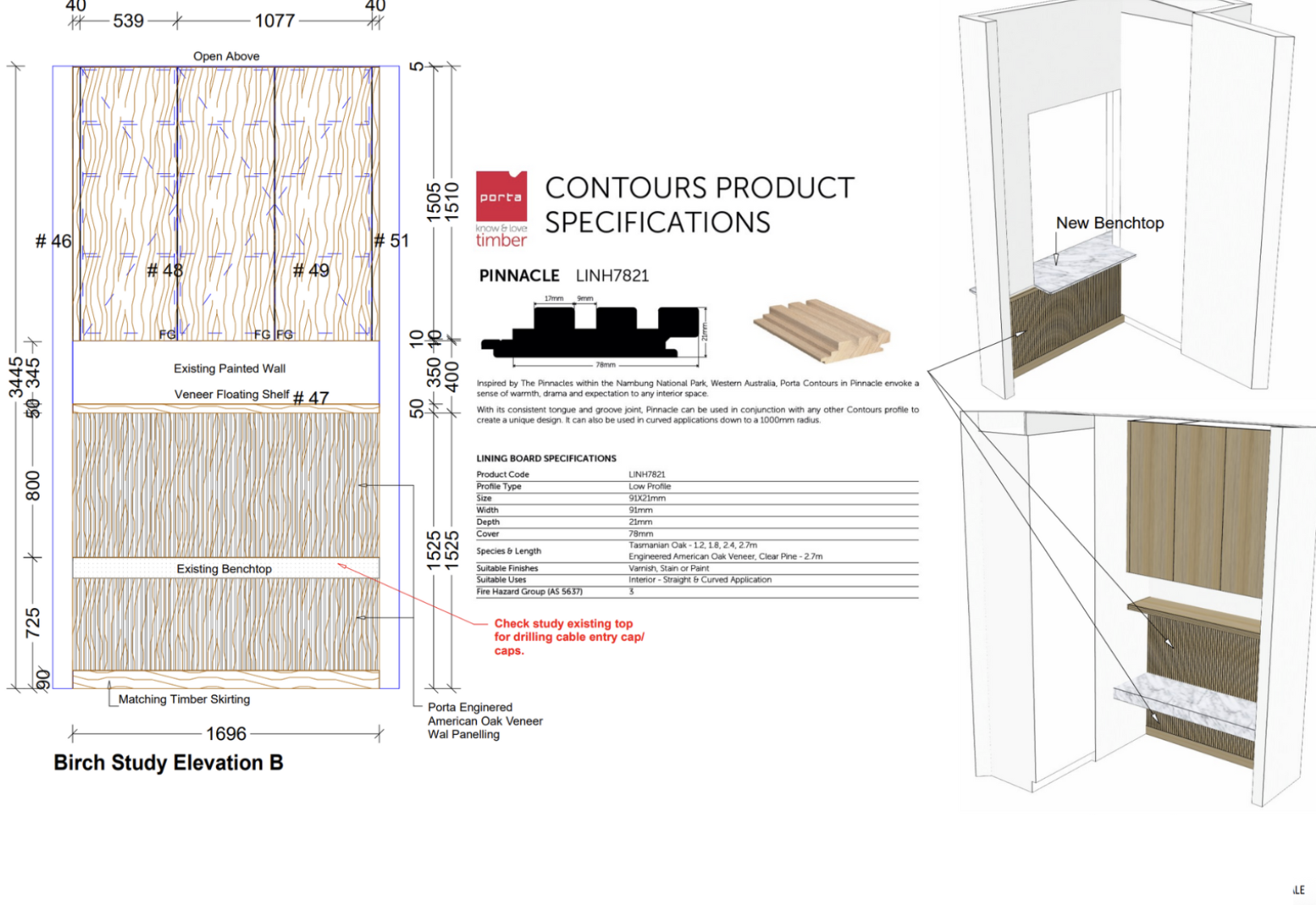
Final Product
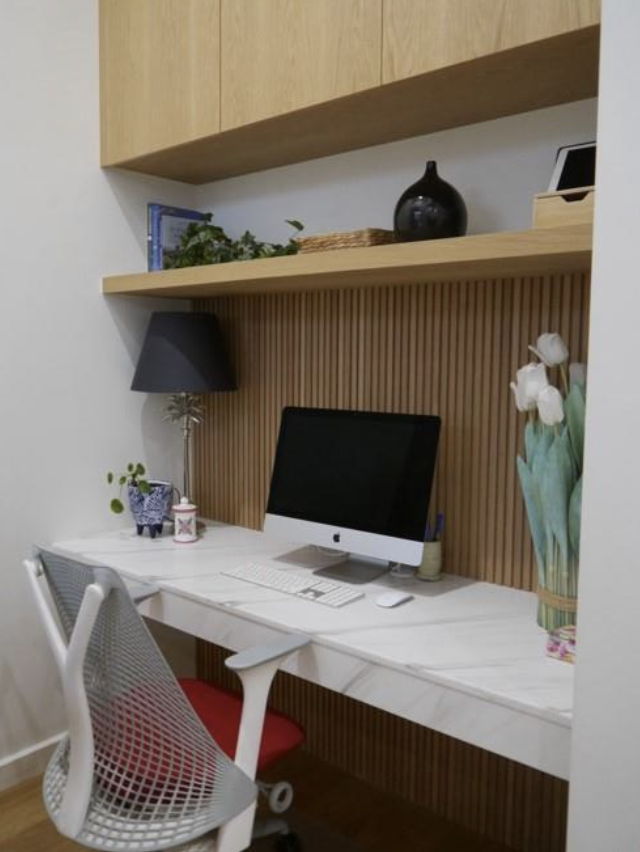
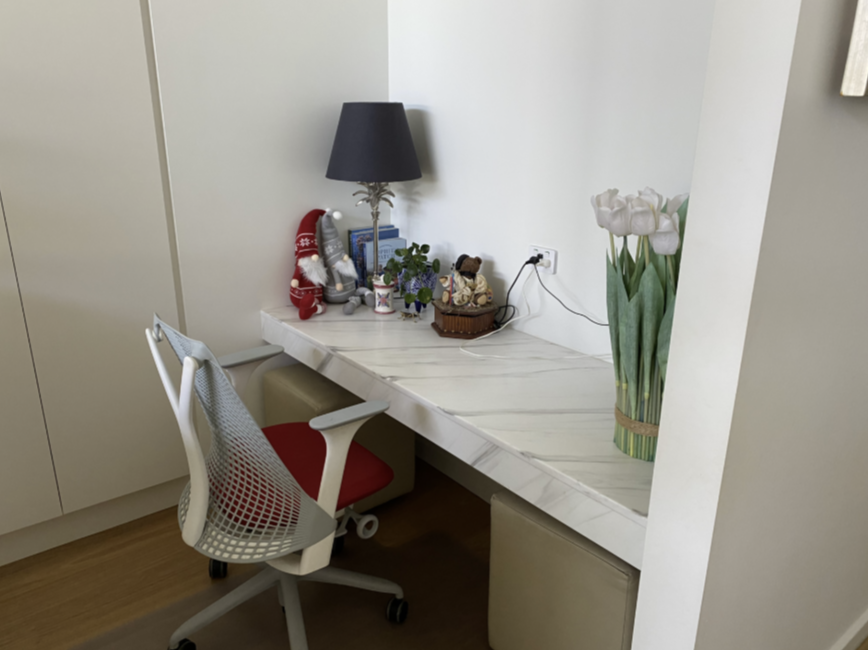
At Harrison Kitchens & Cabinets, we understand the appeal of DIY projects, but we also recognize that kitchen installations are complex undertakings that benefit from professional expertise. Our team brings years of specialized experience, proper tools, and industry knowledge to ensure your kitchen renovation is completed safely, efficiently, and to the highest standards.
If you're considering a kitchen renovation, we invite you to contact us for a consultation. We can help you understand the full scope of your project and provide a clear picture of what professional installation offers in terms of quality, safety, and peace of mind. Let us help you create the kitchen of your dreams without the headaches, hazards, and hidden costs of DIY installation.
Go Back to Blogs